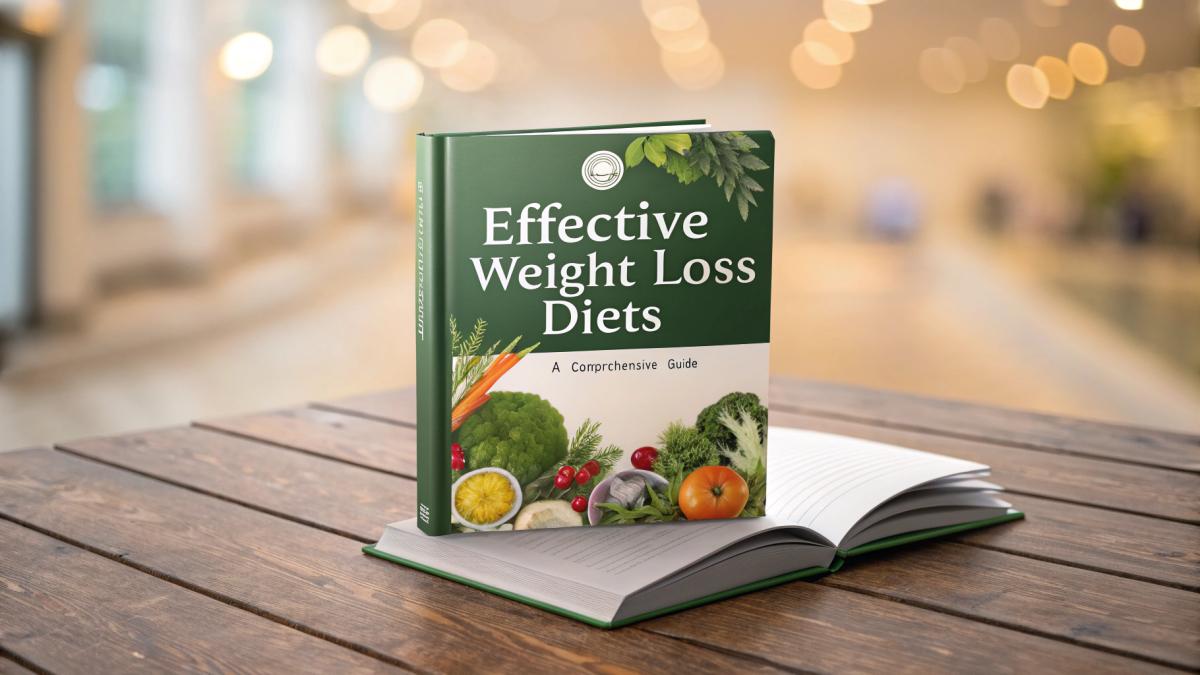In our constant quest for a healthier and fitter lifestyle, weight loss diets have taken center stage. With new trendy diets constantly popping up, it's important to separate fact from fiction and critically evaluate the scientific evidence behind them. Let's dive into some popular diets and debunk their myths while analyzing the scientific evidence backing them up.
The Ketogenic Diet: Is It the Holy Grail?
The ketogenic diet has been gaining significant attention lately. Proponents claim that it promotes rapid weight loss by inducing a state of ketosis, where the body primarily burns fat for fuel. However, while initial weight loss may be substantial, a majority of the weight shed is often water weight rather than fat loss. Additionally, long-term adherence can be challenging, and potential side effects such as nutrient deficiencies and digestive issues must also be considered. Scientific studies supporting its effectiveness as a sustainable weight loss tool are limited and inconclusive.
The Paleo Diet: Back to Our Ancestral Roots?
The Paleolithic diet, often referred to as the Paleo diet, emphasizes consuming foods believed to be available to our ancestors during the Paleolithic era. The diet relies heavily on lean meats, fish, fruits, vegetables, nuts, and seeds while excluding grains, legumes, and processed foods. Although the Paleo diet encourages the consumption of whole foods and limits processed products, critics argue that the exclusion of entire food groups could result in nutritional imbalances and deficiencies. Notably, the long-term effects and sustainability of the Paleo diet remain largely unexplored in scientific research, making it difficult to draw definitive conclusions regarding its efficacy for weight loss.
The Mediterranean Diet: A Delightful Journey to Health?
The Mediterranean diet is inspired by the dietary patterns of individuals in Mediterranean countries and focuses on whole foods like fruits, vegetables, whole grains, legumes, lean proteins, and healthy fats such as olive oil. Its abundant consumption of plant-based foods, moderate intake of fish and poultry, and limited red meat make it a promising option for sustainable weight loss. Extensive research indicates that this lifestyle may help reduce the risk of cardiovascular diseases, inflammation, and promote overall well-being. However, individual results may vary, and portion control still plays a crucial role in achieving weight loss goals.
The Intermittent Fasting Trend: Cutting the Calories Through Time Restriction
Intermittent fasting has received considerable attention due to its simplicity and perceived effectiveness. It involves alternating periods of fasting with periods of normal eating. While numerous individuals find success with intermittent fasting, research supporting its effects on weight loss is mixed. It may be attributed to a reduction in overall calorie intake rather than the specific timing of meals. Additionally, intermittent fasting might not be suitable for individuals with certain medical conditions, and consultations with healthcare professionals are recommended before adopting this approach.
Remember, when it comes to weight loss, there is no one-size-fits-all solution. Individual factors such as genetics, activity level, and underlying medical conditions can significantly influence the effectiveness of any diet. It's crucial to consult healthcare professionals or registered dietitians who can provide personalized guidance tailored to your specific needs.
The Pros and Cons of Different Weight Loss Diets: Which Approach is Right for You?
When it comes to weight loss, there is no shortage of diets and approaches to choose from. From low-carb to low-fat, intermittent fasting to meal replacements, the options can be overwhelming. To help you navigate through the sea of choices, let's take a closer look at the pros and cons of different weight loss diets and find out which approach might be the right fit for you.
1. Low-Carb Diets
Pros: Low-carb diets, such as the ketogenic diet, have gained popularity due to their ability to promote quick weight loss. By reducing the intake of carbohydrates, these diets force the body to burn stored fat for energy, leading to significant fat loss. Additionally, low-carb diets can help control blood sugar levels and reduce hunger and cravings.
Cons: However, low-carb diets may not be suitable for everyone. They can be restrictive and challenging to sustain in the long term. Some individuals may experience initial side effects like fatigue, constipation, or bad breath. Furthermore, low-carb diets may limit the intake of certain nutrient-rich foods, such as fruits and whole grains.
2. Low-Fat Diets
Pros: Low-fat diets have long been recommended for weight loss due to their potential to reduce calorie intake. These diets often emphasize consuming fruits, vegetables, whole grains, and lean protein sources. By choosing low-fat options, you can reduce overall calorie consumption, leading to weight loss and improved heart health.
Cons: While low-fat diets can be effective, they may not be as satiating as other approaches. Some individuals may find it challenging to adhere to low-fat diets as they can be less flavorful and satisfying. Additionally, not all fats are bad for you, and a complete avoidance of fats may miss out on essential nutrients.
3. Intermittent Fasting
Pros: Intermittent fasting has gained attention for its potential health benefits beyond weight loss. By restricting the eating window, this approach can help control calorie intake effectively. It may also improve insulin sensitivity, promote cellular repair, and even boost brain health.
Cons: However, intermittent fasting may not suit everyone, especially those with certain medical conditions or who struggle with disordered eating patterns. Some people may find it difficult to adhere to fasting hours, leading to overeating. It's essential to approach intermittent fasting with caution and consult a healthcare professional, if needed.
4. Meal Replacements
Pros: Meal replacements, such as shakes or bars, provide convenience and structure when trying to lose weight. These products are typically portion-controlled and have a balanced nutrient profile. They can be helpful for individuals who struggle with portion control or finding time to prepare healthy meals.
Cons: While meal replacements can be beneficial in the short term, relying solely on them can hinder long-term sustainability. It's essential to transition back to whole foods and learn healthy eating habits to maintain weight loss. In addition, some meal replacements may contain artificial ingredients or high levels of sugar, so choosing wisely is important.
Ultimately, the best weight loss diet is the one that suits you as an individual. It's crucial to consider your lifestyle, preferences, and health conditions when choosing an approach. Additionally, seeking guidance from a registered dietitian or healthcare professional can provide personalized recommendations and ensure you're making informed choices on your weight loss journey.
Sustainable Weight Loss Diets: Focus on Long-term Success and Optimal Health
When it comes to weight loss, it's important to adopt a sustainable approach that not only helps you shed pounds but also promotes long-term success and optimal health. With so many diets promising quick fixes and drastic results, it's crucial to be cautious and prioritize health over short-term gains.
Instead of resorting to crash diets or extreme calorie restrictions, focus on making healthy lifestyle changes that you can stick to in the long run. Sustainable weight loss involves making gradual adjustments to your eating habits and incorporating regular physical activity, rather than relying on temporary fads.
The Importance of Balanced Nutrition
A key component of any sustainable weight loss diet is balanced nutrition. Restricting entire food groups or severely cutting calories can lead to nutrient deficiencies and long-term health complications. Aim for a well-rounded diet that includes a variety of fruits, vegetables, whole grains, lean proteins, and healthy fats. These nutrient-dense foods provide essential vitamins, minerals, and antioxidants that support overall health and help you maintain energy levels.
Furthermore, paying attention to portion sizes is crucial. Even healthy foods can contribute to weight gain if consumed in excess. Learning to listen to your body's hunger and fullness cues can help you maintain a healthy calorie intake while still enjoying your meals.
Regular Physical Activity
No weight loss diet is complete without regular physical activity. Exercise not only helps burn calories but also improves cardiovascular health, increases muscle mass, and boosts overall well-being. Engaging in activities that you enjoy will make it easier to incorporate exercise into your daily routine. Whether it's taking brisk walks, going for a bike ride, or participating in a group fitness class, find activities that make you happy and keep you motivated.
Remember, sustainable weight loss is not just about shedding pounds, but also about improving your body composition and overall fitness level. Building muscle through resistance training is especially important, as it increases your metabolism and helps burn fat more efficiently. Don't be discouraged by the numbers on the scale; focus on how you feel and the positive changes you notice in your body and overall well-being.
Mindful Eating and Behavioural Changes
In addition to focusing on nutrition and exercise, adopting mindful eating habits and making behavioural changes are essential for sustainable weight loss. Mindful eating involves being present and fully aware of your food choices, eating slowly, and paying attention to your body's hunger and fullness signals. This practice can help prevent overeating and emotional eating, leading to healthier food choices and long-term weight management.
Behavioral changes, such as setting realistic goals, keeping track of your progress, and seeking social support, can also significantly impact your weight loss journey. Changing old habits takes time and effort, and having a support system can make it easier to stay motivated and accountable.
Consult a Healthcare Professional
While there are numerous weight loss diets available, it's important to consult a healthcare professional or registered dietitian before embarking on any significant dietary changes. They can evaluate your individual needs, medical history, and provide personalized recommendations that will support your weight loss goals while ensuring optimal health.
Sustainable weight loss diets prioritize long-term success and optimal health over quick fixes. Adopting balanced nutrition, regular physical activity, mindful eating habits, and making behavioural changes are key components of a sustainable approach to weight loss. Remember, it's about making lasting changes to your lifestyle that will benefit your overall well-being and contribute to lifelong weight management.



